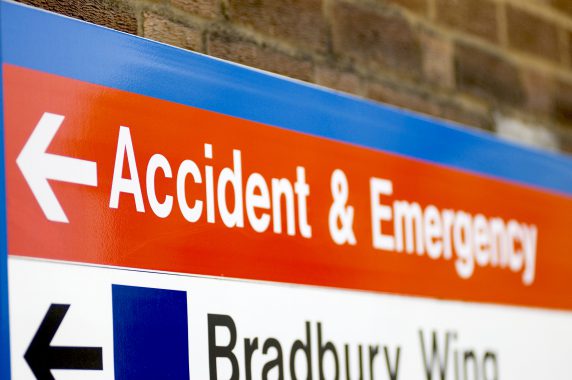Doctors and politicians are demanding action as just 76.4% of patients were treated within the four-hour target at major A&E departments in March.
For all A&E departments, the performance was 84.6% last month – the worst on record since the target was set for 95% of patients to be seen within four hours.
Meanwhile, data compiled by the Labour Party revealed that the 18-week standard for planned treatment to begin following a referral was not met for two years.
And, for the first time since August 2012, the number of patients waiting over a year for treatment surpassed 2,000.
Data also showed that waiting lists for elective care grew by nearly 5% compared to the previous year, as a result of the blanket cancellation of non-urget operations at hospital trusts during winter.
Labour shadow health secretary Jonathan Ashworth said: ‘Today’s statistics reveal a shocking new low for A&E departments under this Tory Government, following years of sustained underfunding…
‘It’s now clearer than ever that we face a year-round crisis in our NHS, which places the very future of our NHS at risk and requires a sustainable long term investment plan.’
Prime Minister Theresa May said last month she is looking at a longer term, ‘multiyear’ NHS funding settlement, set to be finalised this year.
Nuffield Trust chief executive Nigel Edwards said: ‘The NHS simply cannot go on like this. Running a health system so close to capacity is highly risky and doing so endangers patient safety, as well as staff wellbeing.
‘The Prime Minister has rightly signalled a more sustainable financial settlement for the NHS. This must ensure that the whole system – both inside and outside of hospital – is able to cope with the levels of demand for healthcare now and in the future.’
Royal College of Emergency Medicine president Dr Taj Hassan said: ‘This should be the final wake-up call for decision makers and minsters. Patients are getting sicker and we do not have enough staff or beds to be able to treat them in a timely manner, and with the dignity they deserve.’
Pulse July survey
Take our July 2025 survey to potentially win £1.000 worth of tokens












